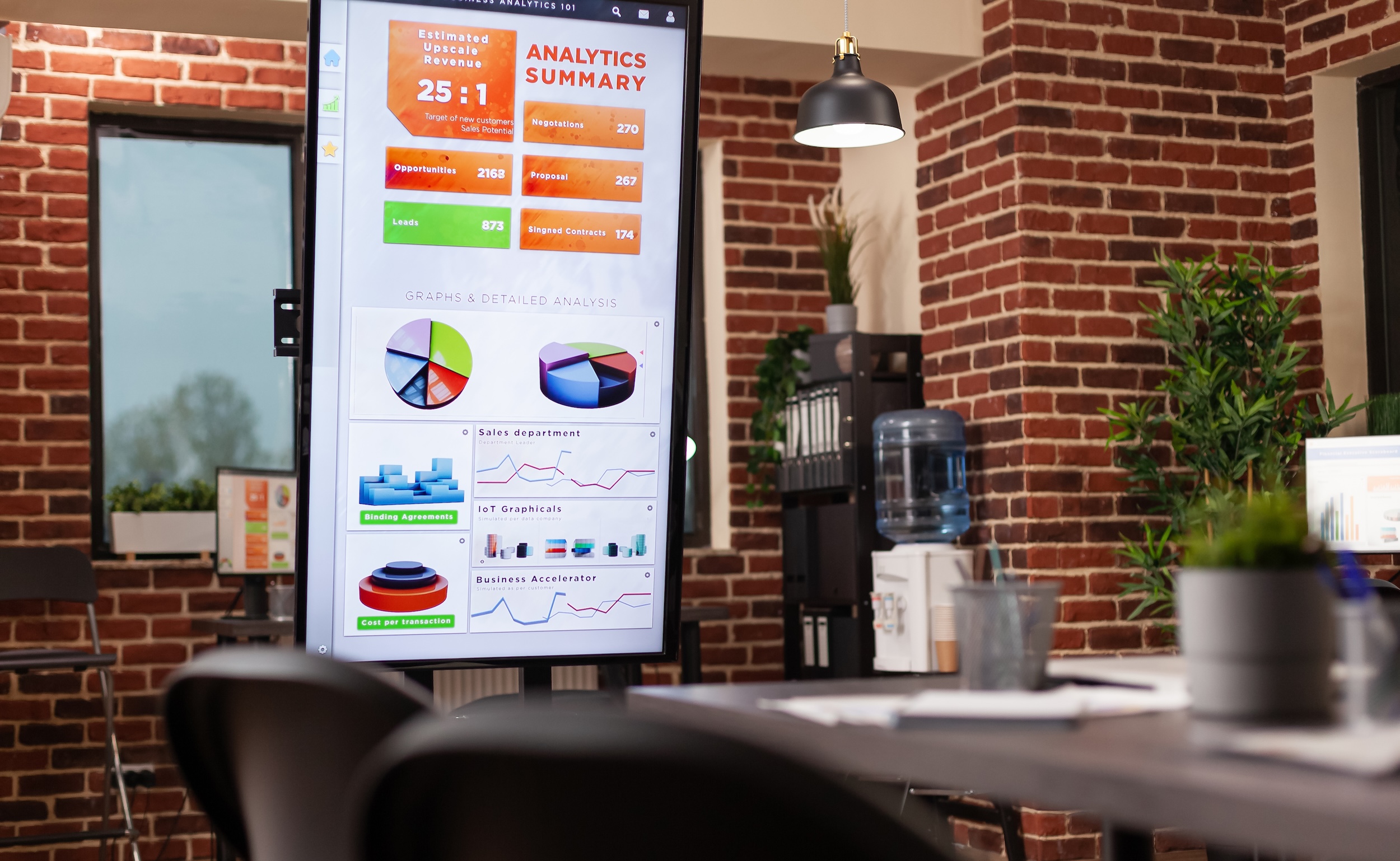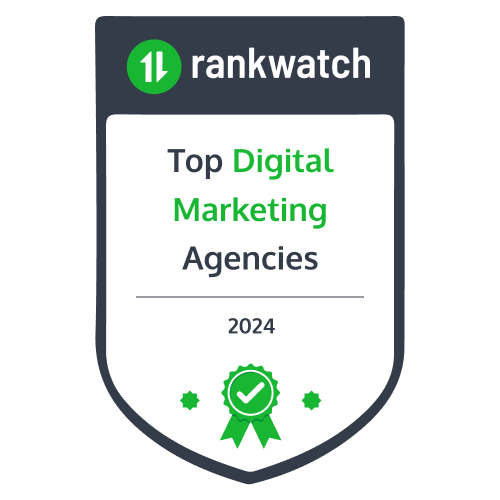Artificial Intelligence (AI) is reshaping the marketing landscape. Businesses are increasingly turning to AI to enhance their marketing strategies.
AI marketing for businesses involves using advanced technologies to automate and optimize marketing efforts. This approach allows for more precise targeting and personalization.
AI-driven marketing can transform the way businesses interact with their customers. It provides valuable insights into consumer behavior and preferences, enabling the delivery of tailored experiences.
Staying ahead of AI marketing trends is crucial for businesses aiming to remain competitive. These trends include chatbots, predictive analytics, and personalized content delivery.
Digital marketing AI can significantly improve ad targeting and customer segmentation. It enhances lead scoring and optimizes marketing campaigns.
Implementing AI in marketing requires a strategic approach. Businesses must understand AI capabilities and invest in the right tools to leverage them effectively.
AI marketing strategies can lead to increased ROI. They optimize marketing efforts and reduce costs, making them highly efficient.
This guide will explore the benefits, trends, and strategies of AI marketing for businesses.
What is AI Marketing? An Overview for Businesses
AI marketing uses artificial intelligence technologies to improve marketing efficiency and effectiveness. It enables businesses to collect and analyze data more efficiently and accurately.
Key components of AI marketing include machine learning, data analysis, and automation. These elements enable marketers to gain valuable insights into consumer behavior and market trends.
Businesses use AI marketing for various purposes. These include personalizing customer interactions and optimizing campaigns. AI technologies can automate time-consuming tasks and improve decision-making processes.
Some essential aspects of AI marketing are:
- Personalization of customer experiences
- Predictive analytics for anticipating market changes
- Automation to save time on repetitive tasks
Businesses should understand the potential of AI in marketing. It is essential to align AI technologies with marketing goals to capitalize on these opportunities fully. Adopting AI marketing can lead to more innovative strategies, delivering better results while reducing operational costs.
The Benefits of AI-Driven Marketing
AI-driven marketing offers several advantages to businesses seeking to enhance their digital marketing strategies. By leveraging AI, companies can personalize customer experiences more effectively. This leads to increased customer satisfaction and loyalty.
One of the most significant benefits is the ability to make data-driven decisions. AI tools analyze vast amounts of data quickly and efficiently. This helps marketers identify trends and make informed decisions.
Cost efficiency is another key advantage. AI-driven marketing can automate time-consuming tasks, reducing the need for manual labor. This allows businesses to focus on strategy and creativity rather than mundane tasks.
AI also enhances targeting capabilities. Businesses can use AI to identify and segment their audience more accurately. This results in more effective advertising campaigns and better returns on investment.
Moreover, AI enables real-time personalization. It enables marketers to deliver the right message to the right audience at the right time. This can significantly boost engagement and conversion rates.
Some of the core benefits include:
- Enhanced data analysis and insights
- Improved cost efficiency and resource allocation
- Greater precision in audience targeting
Overall, AI-driven marketing provides a competitive edge. It helps businesses adapt to changing market dynamics and consumer preferences, ensuring sustainability and growth in the digital landscape.
Key AI Marketing Trends Shaping 2025 and Beyond
AI marketing is evolving rapidly, with new trends emerging every year. In 2025, several key trends are expected to have a significant impact on the industry. Businesses must stay updated to maintain a competitive edge.
AI-powered chatbots continue to rise in popularity. They offer personalized support and responses 24/7, enhancing customer service. This trend shows no signs of slowing down.
Predictive analytics is gaining momentum. By analyzing past consumer behavior, AI predicts future trends and preferences. This enables businesses to conduct strategic planning and informed decision-making processes.
Personalized content delivery is becoming even more crucial. AI helps marketers tailor content to individual preferences, enhancing engagement and conversion rates. This trend is expected to dominate content marketing strategies.
Voice search optimization is another growing trend. With the increasing use of smart speakers, businesses are focusing on optimizing for voice-driven searches. This requires a unique approach to SEO and content creation.
Machine learning in advertising will become more prevalent. It helps optimize ad targeting, reducing costs and improving returns. Businesses are investing in these technologies to maximize advertising efficiency.
Emerging trends to watch include:
- AI-driven customer segmentation
- Enhanced personalization techniques
- Advanced data security measures
Staying informed about these trends is vital. Companies that embrace AI technologies will be better equipped to navigate the ever-changing digital marketing landscape. These trends are not just about the future; they are actionable opportunities for today's businesses to capitalize on.
How AI is Transforming Digital Marketing
AI is revolutionizing digital marketing, making it more efficient and effective. It enables marketers to understand better and reach their audience. AI tools rapidly analyze vast amounts of data, providing actionable insights.
With AI, businesses can automate repetitive tasks. This frees up time for marketers to focus on creative strategies. Automated processes include email marketing, ad placement, and social media scheduling.
Personalization is a key benefit of AI-driven marketing. AI analyzes consumer data to deliver tailored experiences. This personalization enhances engagement and customer satisfaction.
AI also improves customer segmentation. By analyzing data patterns, AI segments audiences more precisely. This results in targeted campaigns with higher conversion rates.
Another transformation is in decision-making processes. AI offers real-time insights, allowing businesses to adapt quickly. This agility ensures that marketing strategies stay relevant and practical.
Key transformations include:
- Automated data analysis
- Improved personalization
- Enhanced customer engagement
The influence of AI on digital marketing is profound. As technology advances, its impact will continue to grow. Businesses that adopt AI early will have a significant competitive advantage. Embracing these transformations is essential for success in today's digital landscape.
Core Applications of AI in Marketing
AI's applications in marketing are diverse and transformative. It automates mundane tasks, enhancing efficiency and creativity. Businesses use AI to personalize experiences, predict trends, and optimize content.
AI excels in personalization. It tailors marketing messages to individual preferences and behaviors. This results in higher engagement and better customer satisfaction.
Predictive analytics is another crucial application. AI forecasts consumer behavior by analyzing patterns. This allows businesses to target the right audience with precision.
Content creation and optimization benefit greatly from AI. AI tools generate insightful content that resonates with audiences. They optimize distribution for maximum reach and engagement.
Chatbots powered by AI revolutionize customer interaction. They provide instant, 24/7 responses, improving service and satisfaction. Conversational marketing through chatbots effectively engages users.
Programmatic advertising is streamlined with AI. It automates ad buying, targeting the right people at the right time. This ensures efficient budget use and high ROI.
Key AI applications in marketing include:
- Personalization of customer experiences
- Predictive analytics for trend forecasting
These applications showcase AI's profound impact on marketing. As AI technologies continue to evolve, their potential will only expand, offering even more opportunities for businesses.
Personalization and Customer Experience
Personalization through AI significantly enhances the customer experience. It uses data to understand individual preferences and needs. Tailored marketing strategies result in higher engagement.
AI analyzes browsing behavior, purchase history, and interests. This analysis helps in crafting personalized messages. Such messages resonate more with customers.
Benefits of AI-driven personalization:
- Increased customer satisfaction
- Higher conversion rates
- Enhanced brand loyalty
AI personalizes at scale, which is not feasible manually. As more data becomes available, personalization will continue to improve. This leads to deeper customer connections and loyalty.
Predictive Analytics and Lead Scoring
Predictive analytics in marketing leverages AI to forecast future trends. It helps businesses anticipate customer needs and preferences. This information boosts strategic decision-making.
AI-driven predictive analytics analyzes historical data. It identifies patterns to forecast consumer behaviors. This approach leads to proactive marketing efforts.
Applications include:
- Effective lead scoring
- Anticipating market trends
- Enhancing decision-making
Lead scoring benefits from predictive analytics. AI rankings are led by their likelihood to convert. This allows sales teams to focus on high-potential leads, improving efficiency.
Content Creation and Optimization
AI revolutionizes content creation and optimization. It helps generate content that resonates with audiences. AI tools utilize data-driven insights to craft targeted and relevant messages.
AI optimizes content for search engines and distribution channels. This ensures maximum reach and engagement. Dynamic content adapted to user preferences increases interaction.
Advantages include:
- Efficient content production
- Better engagement rates
- Improved search engine rankings
AI tools simplify the content creation process. They save time, enabling marketers to focus on creativity. The result is strategic and impactful marketing content.
Chatbots and Conversational Marketing
AI-powered chatbots are a cornerstone of conversational marketing. They offer 24/7 customer service, enhancing user experience. Quick, automated responses satisfy today's customer demand for immediacy.
Chatbots handle repetitive inquiries efficiently. This frees up human agents for complex issues. Businesses benefit from reduced operational costs.
Features of AI chatbots include:
- Instant, round-the-clock service
- Handling of multiple queries simultaneously
- Personalization in conversations
Conversational marketing with chatbots boosts engagement. It creates a seamless customer journey. The technology is integral to modern marketing strategies.
Programmatic Advertising and Ad Targeting
AI optimizes programmatic advertising, automating the ad buying process. It targets specific audiences based on data insights. This precise targeting maximizes ad relevance and effectiveness.
AI determines the best ad placement and timing. It utilizes real-time data to ensure ads reach the right people. This leads to higher engagement and conversion rates.
Key benefits are:
- Efficient use of marketing budgets
- Increased ad performance
- Enhanced targeting capabilities
AI makes ad targeting more sophisticated. It quickly adapts to changes in consumer behavior. This adaptability is crucial to the success of digital marketing campaigns.
AI Marketing Tools Every Business Should Know
AI marketing tools are revolutionizing how businesses interact with their customers. These tools enhance efficiency and effectiveness. They automate tasks and provide deep insights into consumer behavior.
Chatbots like Drift and Chatfuel automate customer interactions. They provide immediate responses, improving customer satisfaction and reducing resource consumption. These tools are essential for seamless communication.
AI-driven analytics platforms, such as Google Analytics and Tableau, offer in-depth insights. They analyze customer data to uncover trends and patterns. This information helps businesses make informed decisions.
Content creation tools, such as Jasper AI and Canva, streamline the creative process. They help generate relevant, high-quality content. This simplifies content marketing strategies significantly.
Essential AI marketing tools include:
- Chatbots: Drift, Chatfuel
- Analytics Platforms: Google Analytics, Tableau
Ad targeting tools, such as Facebook Ads and Google Ads, utilize AI to optimize campaigns. They ensure that ads reach the right audience at the right time. This results in higher ROI and conversion rates.
Predictive analytics tools, such as IBM Watson and Salesforce Einstein, forecast trends. They provide valuable insights into future customer behavior. This enables businesses to anticipate needs and adjust their strategies accordingly.
Essential predictive tools are:
- IBM Watson
- Salesforce Einstein
These AI tools are pivotal in modern marketing. They enhance capabilities and open new opportunities for growth. Businesses leveraging these tools can gain a competitive edge.
Building an AI Marketing Strategy: Step-by-Step Guide
Creating an AI marketing strategy starts with clear objectives. Knowing your goals will guide the entire process. It ensures every step aligns with your business vision.
Next, assess your current marketing capabilities. Identify areas that need improvement and where AI can add value. This evaluation informs the selection of AI tools to implement.
Researching the latest AI tools is crucial. This helps in selecting those that fit your specific needs. Consider their scalability and integration with your existing systems.
Form a dedicated AI marketing team to drive implementation. This team should include both marketing and IT professionals. Their collaboration ensures technology aligns with strategic goals.
When implementing AI tools, start small to test their impact. This minimizes risks and provides insights for broader application. Pilot projects can reveal potential challenges and areas for refinement.
Key steps to start AI marketing:
- Define Objectives
- Assess Current Capabilities
- Research AI Tools
- Form a Team
- Start Small
Evaluate the AI marketing strategy regularly. Use key performance indicators (KPIs) to measure success. This helps track progress and makes adjustments as necessary.
Important KPIs might include:
- Customer Engagement Metrics
- Conversion Rates
- ROI
A successful AI marketing strategy evolves. Stay informed about the latest trends and technologies. Continuous learning ensures your strategy remains effective and competitive. Regular evaluations will lead to gradual, sustained improvement.
Overcoming Challenges in AI Marketing Implementation
Implementing AI in marketing presents unique challenges. Businesses need to navigate these effectively. Awareness and preparation are crucial for success.
Data quality is a primary concern. AI systems rely on accurate data for optimal performance. Ensuring data is clean and well-structured is essential. It's a foundational step in implementing AI marketing.
Another significant challenge is cost. Investing in AI technology can be expensive. Careful budgeting and prioritization help manage this. Businesses must balance costs with expected benefits.
Employee training is often necessary. Staff need to understand AI tools and their applications. Training ensures that employees can use AI effectively. This investment in knowledge pays off over time.
The following list summarizes common implementation challenges:
- Data Quality
- High Costs
- Employee Training Needs
Addressing these challenges involves strategic planning. Regular reviews and adjustments ensure effectiveness. By being proactive, businesses can effectively integrate AI into their marketing strategies. This way, the potential of AI can be fully realized.
Data Privacy, Ethics, and Responsible AI Use
AI marketing highlights privacy and ethical concerns. Businesses must prioritize data privacy. Protecting customer information is crucial.
Transparency is key to building trust. Companies should clearly explain data usage. Customers appreciate openness about how their data is handled.
Ethical AI use also involves avoiding bias. AI systems can inadvertently encode biases. Regular reviews and audits help minimize this risk. It's essential to train AI systems with diverse data sets.
Responsible AI use extends beyond compliance. It requires a commitment to ethical practices. Businesses can adopt best practices to set a positive example.
Key considerations for responsible AI use include:
- Prioritizing data privacy
- Ensuring transparency in AI operations
- Actively preventing bias in AI systems
By focusing on these areas, businesses can utilize AI ethically. This approach helps maintain consumer trust and aligns with regulatory standards.
Measuring Success: KPIs and ROI in AI Marketing
Measuring AI marketing success requires clear Key Performance Indicators (KPIs). These metrics align with business objectives. Identifying the right KPIs is crucial for evaluating the effectiveness of AI.
Return on Investment (ROI) is a core metric. It helps quantify gains versus costs. AI tools should demonstrably improve marketing outcomes. Enhanced customer engagement is often a direct benefit. It reflects the success of AI-driven personalization.
For a comprehensive evaluation, track multiple indicators. These could include lead conversion rates, customer lifetime value, and campaign performance. Together, they offer a comprehensive view of the impact of AI.
Essential KPIs for AI marketing include:
- ROI and cost savings
- Engagement rates and customer satisfaction
- Conversion rates and lead quality
Regularly reviewing these KPIs ensures strategies stay aligned with business goals. By focusing on tangible outcomes, businesses can efficiently gauge the success of their AI marketing efforts.
Real-World Examples: How Leading Brands Use AI in Marketing
Leading brands worldwide are leveraging AI to transform their marketing strategies. These companies showcase how AI enhances customer engagement and satisfaction. Let’s explore some practical examples.
Amazon sets the standard with its recommendation engine. It provides personalized suggestions, improving the shopping experience. By analyzing user behavior, Amazon increases sales and customer loyalty.
Spotify uses AI to curate personalized playlists. Through deep learning, it tracks listening habits. This keeps users engaged and increases subscription renewals by tailoring content to individual tastes.
Coca-Cola harnesses AI for sentiment analysis. By monitoring social media, they gauge public reaction. This data-driven approach enables campaigns to be adjusted in real-time for maximum impact.
Examples of AI usage include:
- Amazon's recommendation engine
- Spotify's curated playlists
- Coca-Cola's sentiment analysis
These examples highlight how AI drives business growth. By adopting AI, companies can achieve superior results and maintain competitiveness.
Future Outlook: The Evolving Role of AI in Business Marketing
AI marketing continues to revolutionize business strategies—the future promises even more sophisticated technologies. As AI continues to evolve, its integration into marketing will continue to deepen.
Businesses will witness AI tools offering greater personalization. Enhanced data processing capabilities will refine customer targeting and segmentation. Real-time responses will dominate customer engagement strategies.
Looking ahead, key areas of growth include:
- Advanced predictive analytics
- Seamless omni-channel experiences
- Improved AI-human collaboration
As AI technology matures, it will unlock new opportunities. Companies that adapt and innovate will lead the market. Embracing AI is crucial for achieving sustained success in the evolving marketing landscape.
Conclusion: Getting Started with AI Marketing for Your Business
Adopting AI marketing can significantly boost your business strategies. Begin with a clear plan that aligns AI capabilities with your goals. Research AI tools that fit your business needs and budget.
Focus on areas where AI can provide immediate benefits, such as customer engagement and data analysis. Stay informed about evolving AI trends and continuously adjust your strategies. By integrating AI thoughtfully, your business will gain a competitive edge in the ever-changing market landscape.













